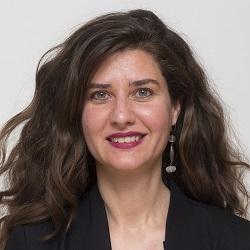European Economic
and Social Committee
Cirkulær økonomi
Omstillingen til en cirkulær økonomi står højt på EØSU's dagsorden som en løsning på, hvordan klimakrisen kan bekæmpes, og vores planet beskyttes. For civilsamfundet er det en stor mulighed, da det kan bidrage til at:
- øge det europæiske erhvervslivs konkurrenceevne
- fremme bæredygtig økonomisk vækst
- skabe nye jobs.
Den "take-make-waste"-model for produktion og forbrug, der stadig præger vores økonomi i dag, resulterer ikke blot i, at ressourcer spildes, men undergraver også kampen mod klimaændringerne. Modsat den lineære økonomi er en cirkulær økonomi en regenererende og genoprettende model med fokus på at skabe og fastholde økonomisk værdi, tackle globale udfordringer som klimaændringer, tab af biodiversitet og forurening og samtidig skabe et økonomisk udbytte.
Den gode nyhed er, at den cirkulære omstilling allerede er i gang i praksis. Civilsamfundsinteressenter, herunder virksomheder, fagforeninger, den akademiske verden og vidensamfund, ungdomsorganisationer, NGO'er og andre interessegrupper, er i gang med at udvikle og gennemføre mange cirkulære initiativer på lokalt og regionalt niveau. Udnyttelse af cirkulære løsninger og lederskab fra relevante interessenter er Europas bedste mulighed for at fremskynde omstillingen til en cirkulær økonomi.
Den europæiske interessentplatform for cirkulær økonomi er et sådant eksempel. Det er et fælles initiativ, der blev etableret af EØSU og Kommissionen i 2017 for at bringe interessenter inden for den cirkulære økonomi i Europa sammen. Den interessentdrevne platform støtter Europas omstilling til en cirkulær økonomi gennem fremme af dialog, videndeling og udveksling af bedste praksis.

